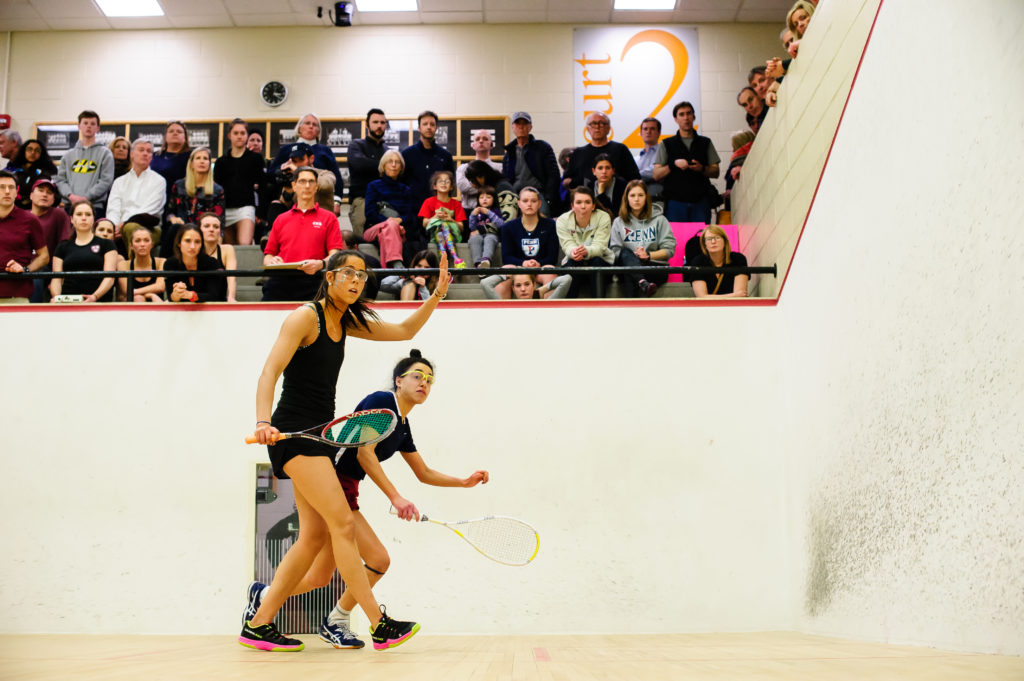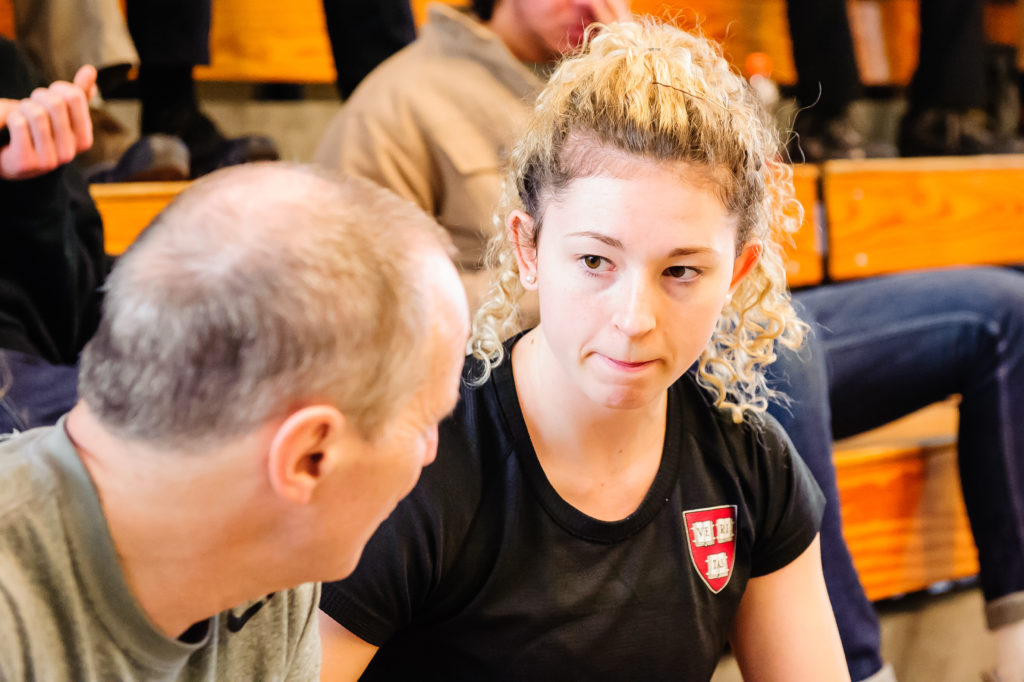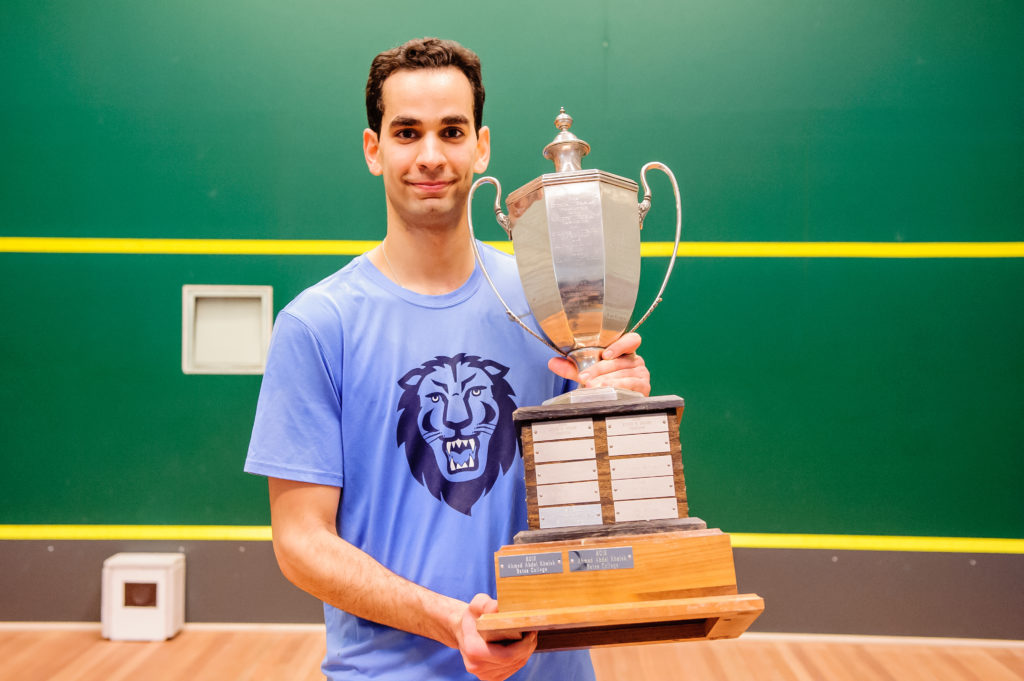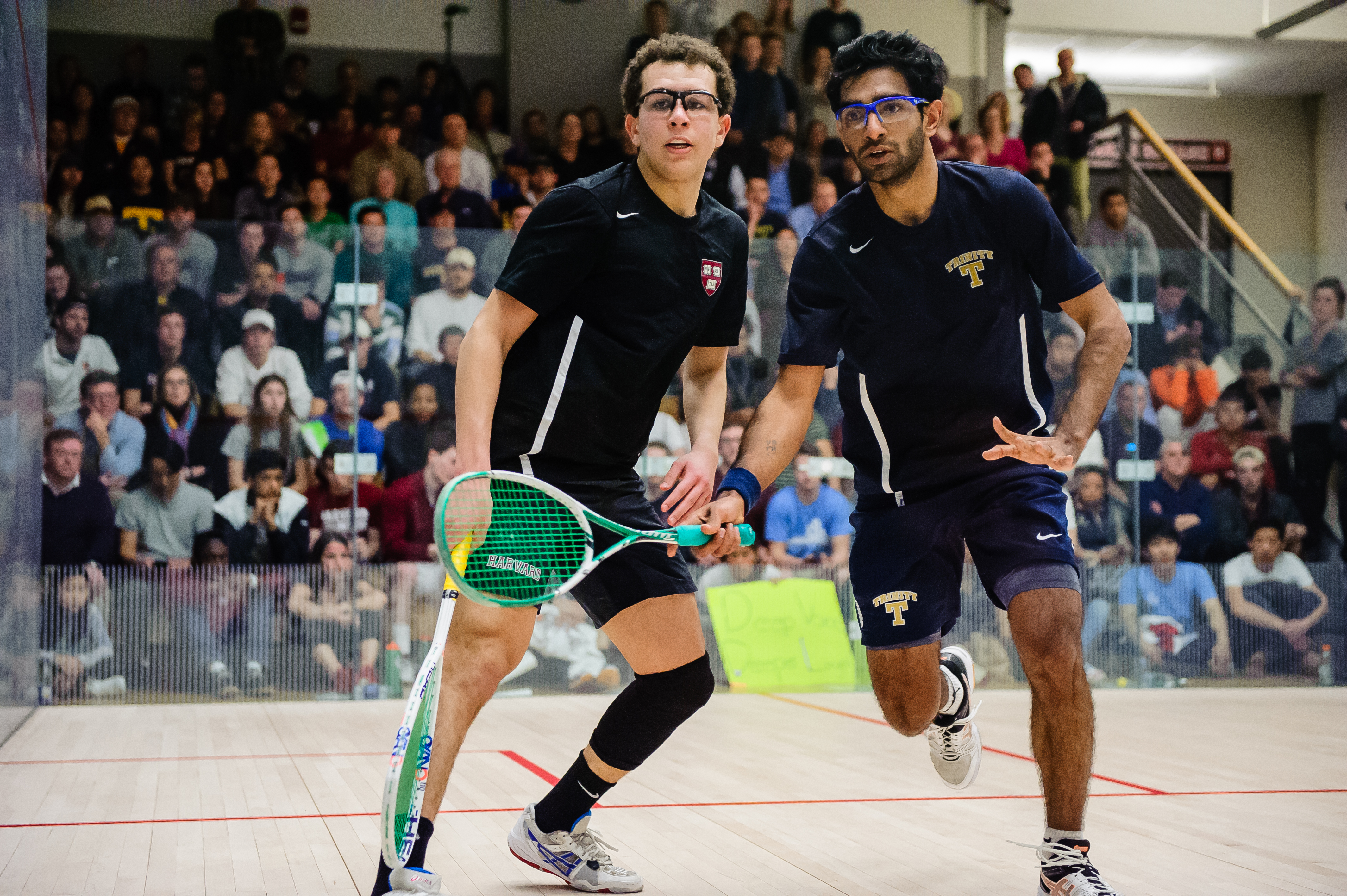
at No. 1 to secure one of Harvard’s four wins in the final
by Dent Wilkens
Photography by Michael T. Bello/mtbello.com
The two leading college teams of this decade—the Harvard women and the Trinity men—captured the 2017 national intercollegiate team titles. Each took a very different route to get there.
This season’s Harvard squad made a strong case for being the greatest women’s college team ever put together. Each varsity member formerly competed for the junior national team of her respective country. Depth was plainly evident: senior Katie Tutrone, who played two on the 2015 Harvard nationals-winning team, slotted in at six this season and Georgina Kennedy went on to capture intercollegiate individual title even though she wasn’t at the top of Harvard’s ladder.
The Crimson lost only seven total individual matches on their way to a fifteen-win undefeated season. Four of those matches came against Penn team, who twice pushed them to 7-2—once in the regular season and then in the National Team final. Reeham Sedky and Melissa Alves won the top two positions for Penn in the National Team final, but Harvard’s depth proved too great as the swept the bottom seven positions.

No. 5 position to secure Harvard’s title defense
The national title—Harvard’s seventeenth Howe Cup—ties them with Princeton for the most all-time, and marked the Crimson’s fifth in the last six years. Mike Way’s squash is well-positioned to take another title in 2018—Harvard graduates no players from their top five and promises to bring in another strong recruiting class.
The match of the National Teams, held at Princeton, was the semifinal between No. 2-ranked Penn and No. 3-ranked Trinity. The Quakers took the regular season matchup 5-4 on their home courts, and the Bantams were looking for revenge on neutral territory. Trinity swept the first round of matches to go up 3-0, but Penn took five of the last six matches to secure a position in the final.
On the men’s side at the National Teams, the top-eight division, the Potter, was rife with surprises as parity reigned. Columbia, the No. 3 seed, defeated inaugural Potter Cup entry Drexel to reach their first national semifinal. Second-seed Harvard showcased exceptional depth through their lineup (former three-time national junior champion Dylan Murray played No. 8) and was able to barely slip past the Lions with a tight 5-4 victory. Fifth-seed St. Lawrence leveraged the strength of several players matriculating in January to top No. 4 Rochester—the 2016 men’s team finalists—in a much-anticipated quarterfinal 6-3.

Top-seeded Trinity backed up their seeding with an exceptional semifinal performance against St. Lawrence, winning 7-2. But the effort took a lot out the Bantams and Trinity had only barely beat Harvard, 5-4, when they played two weeks earlier. Furthermore, the men’s national team title had been captured by the home school in the last three iterations—Harvard in 2014, Trinity in 2015 and Yale in 2016. As the 2017 event had returned to Harvard’s Murr Center, perhaps fate was against Trinity?
The final became an instant classic, ending in one of the more exciting finishes in the history of the event. With two matches remaining—on adjacent courts backed by a large Harvard crowd—Trinity held a 4-3 lead and needed only one win to place themselves once again back on the mountaintop of men’s college squash.
Trinity held a 2-1 lead in both those remaining matches, and the outcome began to look inevitable with Trinity’s No. 4 Michael Craig, up 2-1, was holding four match balls at 10-6 against Harvard’s Timmy Brownell, and his Bantam teammate Omar Allaudin was locked in a close contest with Harvard’s Bryan Koh at No. 7. However, Koh, down 2-1, took the fourth and was on his way to a Crimson victory in the fifth.
So it was coming down to the Craig v. Brownell match. More than thirteen minutes later, Brownell had scrapped, dove, and fought his way back to 9-10, having saved three match points. Only then was Craig finally able to overcome Brownell’s determined effort, winning the match 11-9 and claiming Trinity’s sixteenth championship in nineteen years.

first-ever national squash title this year, with a three-game victory over Rochester’s Mario Yanez


